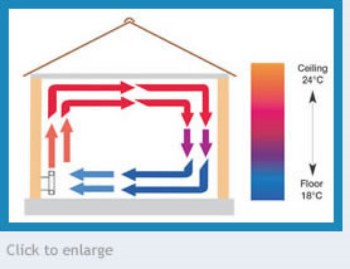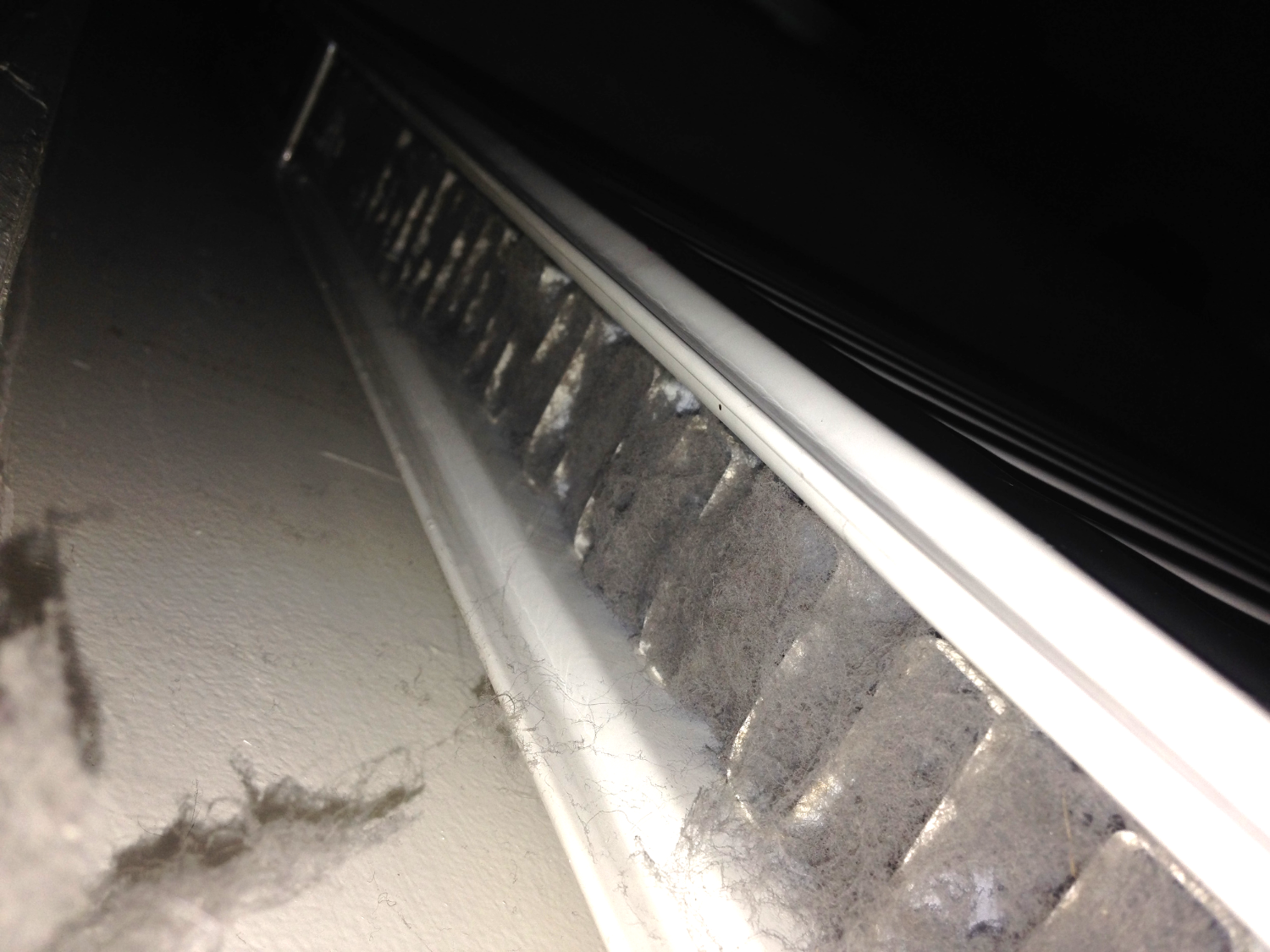Keep your radiators as efficient as possible!
Radiators work by means of convection - as the radiator warms the air next to it this heated air rises, drawing cool air into and through the radiator from underneath. This movement of air sets up vertical currents that will distribute heated air throughout the room. This cycle can be seen from the picture below.
It is therefore essential that the air be able to flow freely over, under and around each radiator. Because air circulation is essential for efficient dispersal of heat, it is important that radiators be cleaned regularly. Radiators and radiator fins should never be allowed to accumulate layers of dust or lint. Such accumulations will not only keep air from flowing freely, they will also act as insulation that will slow the transmission of heat.
When radiators are not working properly, or when they are not putting out as much heat as they should, some parts of the house will be colder than others. When this happens, people tend to turn the thermostat higher than normally required, thus adding considerably to the heating bill.
Underneath a radiator that was not working properly
This is exactly what happened at the property where the above picture was taken. The customer contacted us complaining that the radiators in her property were not getting as hot as the use to, even with the radiator valves turned up. She believed that there was a fault with the central heating system at the property. In fact, as can be seen from the above picture, there was nothing wrong with the central heating system on this occasion the heat loss was caused by the accumulation of dust under the radiators which meant that convection could not take place.
Regular cleaning under radiators could therefore potentially save you money and keep you warm.
Please feel free to contact us by email at sales@neonheating.co.uk or by telephone 01432 880573 if you are experiencing similar issues.


